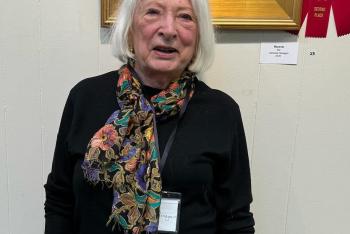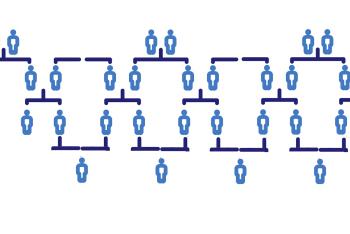For 81-year-old artist Bonnie Flanagan, an overall assessment of her health, which included a self...
Read More

Currently, smoking is the leading cause of preventable death in the United States, according to the Centers for Disease Control and Prevention (CDC). And while tobacco use is attributed to over 7 million deaths every year, there is one way you can help fight this growing statistic: kick your smoking habit!
“It is not a secret that tobacco use and smoking are detrimental to the human body. But people rarely understand exactly what this habit does,” said Charles Shieh, M.D., thoracic surgeon and medical director of Lung Cancer at Inspira Health “When you smoke a cigarette, you are welcoming a series of chemicals and toxins into your body. Not only this, but the smoke you inhale damages your airways, ruins nerve endings and ultimately, leads to the constriction of blood vessels. It is this process that leads to the characteristic diseases associated with smoking such as heart attacks, strokes and cancer.”
According to the CDC, smoking is responsible for illnesses such as heart disease, chronic obstructive pulmonary disease (COPD), cancer, diabetes, cardiovascular disease and lung disease. However, quitting smoking is proven to have immediate, life-long benefits.
“From the minute you quit smoking, your heart rate drops. And within just a few days, your blood carbon monoxide levels go back to matching the level of a non-smoker,” said Dr. Shieh. “So imagine how much your body will bounce back a few years after ceasing the smoking habit. The risk of stroke, heart attacks, blood clots, lung cancer, bladder cancer and heart disease drops significantly.”
But when it comes to saying goodbye to smoking, it is easier said than done.
“For many people, giving up this habit is one of the hardest things they will ever have to face. Nicotine, a key ingredient in tobacco, triggers dopamine release in the body—hence the term ‘nicotine addiction,’” said Dr. Shieh. “And this nicotine withdrawal can be accompanied by serious side effects like depression, difficulty sleeping, irritability and inability to concentrate. But there are tools and resources ready to help.”
Managing withdrawal starts with deciding to quit. But the most important thing to know is that you are never alone. Talking with your health care team can help you create a tailored withdrawal plan equipped with support groups and management techniques.
“Inspira’s Quit Center has been an amazing asset to the South Jersey community. Here, we have a team of seasoned professionals ready to help patients across the region kick this habit once and for all. And it can all start right now,” said Dr. Shieh. “But remember, Step One: Commit to quit.”

For 81-year-old artist Bonnie Flanagan, an overall assessment of her health, which included a self...
Read More
Uncover the hidden connections between your family's past and your future well-being as we delve...
Read More
Treating cancer requires an arsenal of tools and preventive measures. Explore the power of...
Read More
The material set forth in this site in no way seeks to diagnose or treat illness or to serve as a substitute for professional medical care. Please speak with your health care provider if you have a health concern or if you are considering adopting any exercise program or dietary guidelines. For permission to reprint any portion of this website or to be removed from a notification list, please contact us at (856) 537-6772